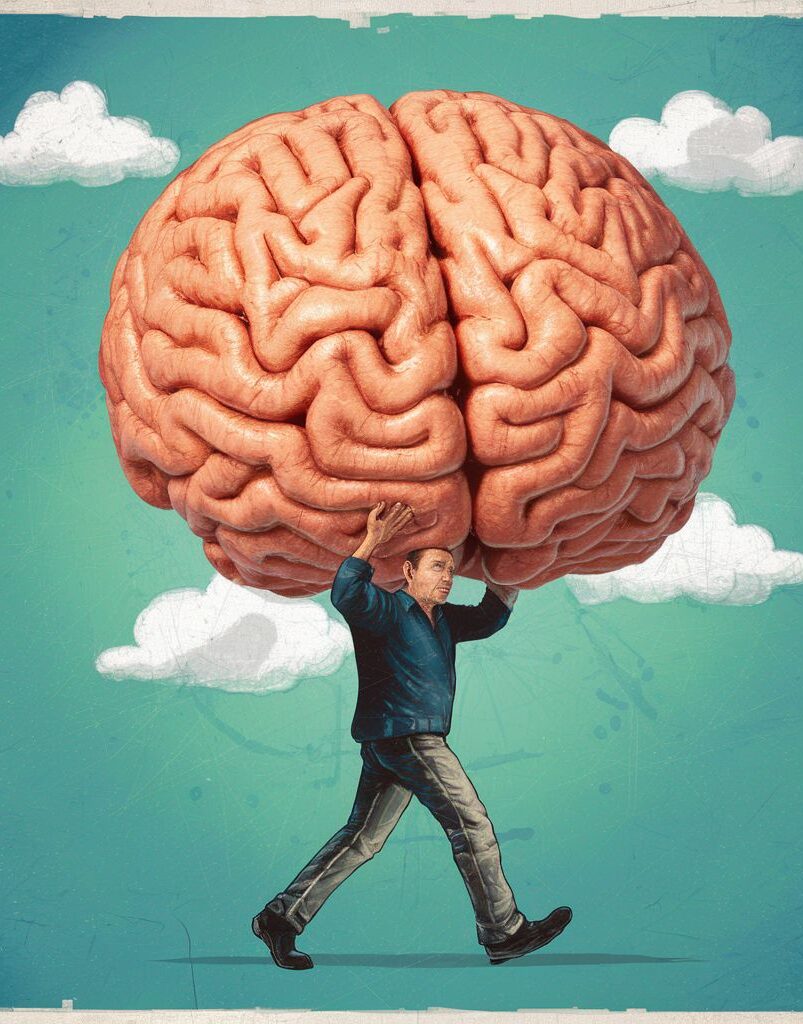Mental health is a vital aspect of our overall well-being. Unfortunately, it is often overlooked or misunderstood, leading to significant consequences for individuals and society as a whole. Mental health issues can manifest in various ways and impact every aspect of a person’s life, from their relationships to their ability to function at work or school. By understanding mental health issues, we can begin to address them effectively.

One of the most significant impacts of mental health issues is their effect on individuals and society. Mental health problems can lead to decreased productivity, strained relationships, and even physical health issues. When left untreated, these problems can escalate, resulting in more severe consequences such as substance abuse, self-harm, or suicide. It is crucial to recognize the far-reaching effects of mental health issues and take proactive steps to address them.
Common Mental Health Issues and Their Symptoms
There are several common mental health issues that people may encounter. Depression, characterized by persistent feelings of sadness, hopelessness, and a lack of interest in activities, affects millions of people globally. Anxiety disorders, on the other hand, involve excessive worry, fear, and apprehension that can interfere with daily life. Other mental health issues include bipolar disorder, schizophrenia, and eating disorders, each with its unique set of symptoms.
Symptoms of mental health issues can vary widely depending on the condition. However, some common signs to look out for include changes in sleep patterns, appetite, and energy levels, persistent feelings of sadness or irritability, difficulty concentrating, and social withdrawal. It is essential to be aware of these symptoms and seek professional help if they persist or interfere with daily functioning.
The Importance of Seeking Help for Mental Health Issues
Seeking help for mental health issues is crucial for several reasons. Firstly, professional assistance can provide an accurate diagnosis and treatment plan tailored to an individual’s specific needs. Mental health professionals, such as psychologists or psychiatrists, have the expertise to identify underlying causes and develop effective strategies for managing symptoms.
Furthermore, seeking help for mental health issues reduces the stigma surrounding mental illness. By openly discussing and addressing these concerns, we can create a more supportive and understanding society. This, in turn, encourages others to seek help without fear of judgment or discrimination. Remember, mental health is just as important as physical health, and seeking help should be seen as a sign of strength, not weakness.
Solutions for Mental Health Issues in Schools
Schools play a crucial role in promoting mental well-being among students. By implementing comprehensive mental health programs, educational institutions can create a supportive environment that fosters emotional growth and resilience. Solutions for mental health issues in schools can include:
-
Increased access to mental health professionals: Schools should have on-site counselors or psychologists who can provide support and guidance to students in need.
-
Education and awareness programs: By educating students, teachers, and parents about mental health, schools can reduce stigma and promote early intervention.
-
Implementing stress management techniques: Schools can incorporate mindfulness exercises, relaxation techniques, and other stress management strategies into the curriculum to equip students with essential coping skills.
Addressing Mental Health Issues Caused by Social Media
In today’s digital age, social media has become an integral part of our lives. While it has many benefits, excessive use of social media can also contribute to mental health issues. Comparing oneself to others, cyberbullying, and the constant pressure to present a perfect image can take a toll on mental well-being. To address mental health issues caused by social media, we can consider the following solutions:
-
Promoting digital detox: Encouraging individuals to take regular breaks from social media can help reduce anxiety, enhance self-esteem, and improve overall mental health.
-
Creating safe online environments: Social media platforms should take a proactive approach in combating cyberbullying and promoting positive interactions among users.
-
Educating users about healthy social media habits: By promoting responsible use of social media and highlighting the importance of self-care, individuals can better navigate the digital world while protecting their mental well-being.
Proven Solutions for Mental Health Issues
When it comes to mental health issues, various proven solutions can help individuals find relief and improve their overall well-being. Two widely recognized approaches are therapy and counseling, which provide a safe and supportive space for individuals to explore their emotions and develop coping strategies. Additionally, self-care practices play a crucial role in maintaining mental well-being. Some effective self-care practices include:
-
Regular exercise: Physical activity has been shown to boost mood, reduce anxiety, and improve overall mental health.
-
Healthy eating habits: Maintaining a balanced diet can positively impact mental health by providing essential nutrients and reducing inflammation in the body.
-
Mindfulness and meditation: Practicing mindfulness and meditation can help individuals reduce stress, increase self-awareness, and cultivate a greater sense of calm and well-being.
Conclusion
Mental well-being is a fundamental aspect of our lives, and addressing mental health issues is crucial for individuals and society as a whole. By understanding these issues, recognizing the symptoms, and seeking professional help, we can effectively address mental health concerns and create a supportive environment. Additionally, implementing solutions in schools, addressing the impact of social media, and utilizing proven methods such as therapy and self-care practices can significantly contribute to improved mental well-being. Remember, mental health matters, and there is no shame in seeking help or taking steps to prioritize your well-being.
If you or someone you know is struggling with mental health issues, remember that help is available. Reach out to a mental health professional or contact a helpline in your country. You are not alone, and there is support out there to guide you on your journey to mental well-being.








Disclaimer:
As a service to our readers, Viva Healthy Products Publishing provides access to our library of archived content. No content on this site, regardless of date, should ever be used as a substitute for direct medical advice from your doctor or other qualified clinician.